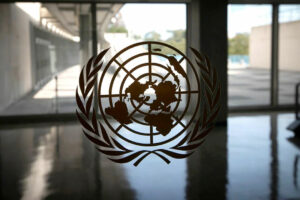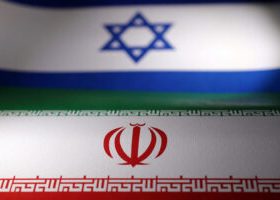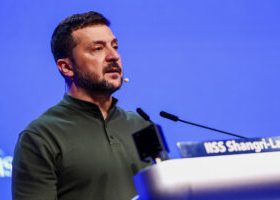UNITED NATIONS — Marking one year since Russia invaded Ukraine, the UN General Assembly will vote next week on a draft resolution stressing “the need to reach, as soon as possible, a comprehensive, just and lasting peace” in line with the founding United Nations Charter.
It again demands Moscow withdraw its troops and calls for a halt to hostilities. The 193-member General Assembly is likely to vote next Thursday after two days of speeches by dozens of states to mark the Feb. 24 anniversary of the start of the war.
Ukraine and its supporters hope to deepen Russia’s diplomatic isolation by seeking yes votes from nearly three-quarters of the General Assembly to match — if not better — the support received for several resolutions last year.
“We count on very broad support from the membership. What is at stake is not just the fate of Ukraine, it is the respect of the independence, sovereignty and territorial integrity of every state,” said European Union Ambassador Olof Skoog, who helped lead the drafting of the General Assembly resolution.
Russia’s Deputy UN Ambassador Dmitry Polyanskiy declined to comment on the draft resolution, which member states received on Wednesday.
The General Assembly has been the focus for UN action on Ukraine because the 15-member Security Council has been paralyzed by Russia, which holds a veto power along with the United States, China, France and Britain.
The Security Council has instead held dozens of meetings on Ukraine in the past year and will again discuss the war next Friday at a ministerial gathering. Diplomats say Russian Foreign Minister Sergei Lavrov is unlikely to travel to New York.
‘ATTACK ON A NEIGHBOR’
General Assembly resolutions are not legally-binding but carry political weight.
Ukraine had wanted the General Assembly draft resolution to enshrine a 10-point peace plan proposed by Ukrainian President Volodymyr Zelensky, but diplomats said the draft was simplified in a bid to garner as much support as possible.
As Russia and the West have vied for diplomatic influence, some states — particularly in the global South — worry they are squeezed in the middle of an intense geopolitical rivalry.
Russia was diplomatically isolated last year, when 141 states voted on March 2 to denounce its invasion and demand Moscow withdraw its troops. Just weeks later, 140 states voted to demand aid access and civilian protection and criticize Russia for a creating a “dire” humanitarian situation in neighboring Ukraine.
Then 143 countries voted on Oct. 12 to condemn Russia’s “attempted illegal annexation” of four partially occupied regions in Ukraine and called on all countries not to recognize the move.
Moscow has tried to chip away at its isolation. Ahead of a vote in April that resulted in Russia’s suspension from the UN Human Rights Council, Russia warned countries that a vote for the measure would be considered an “unfriendly gesture” and taken into account in the development of bilateral relations.
Russia says it launched what it calls a “special military operation” to “denazify” Ukraine and protect Russian speakers, and also now accuses the West of waging a “proxy war” against it by arming Ukraine and imposing sanctions on Moscow.
The United States and western allies have called the invasion an unprovoked land grab against a sovereign nation.
At the United Nations, the United States and other western countries have worked to maintain diplomatic support for Ukraine by focusing on the founding UN Charter, a key principle of which is respect for sovereignty and territorial integrity.
“You cannot be neutral when there is a country that is attacking another country,” US Ambassador to the United Nations, Linda Thomas-Greenfield, said last month. “It’s an attack on the UN Charter. It’s an attack on the sovereignty of an independent country. It’s an attack on a neighbor.” — Reuters









